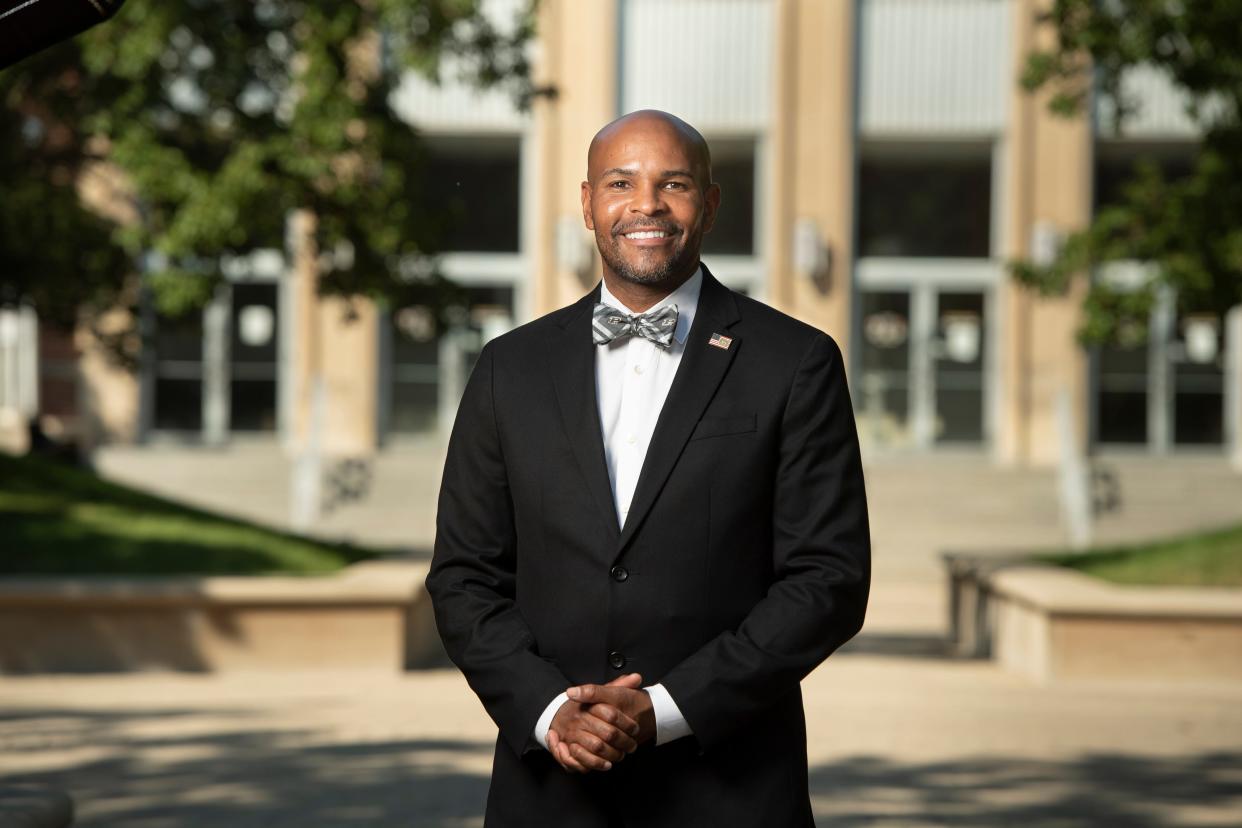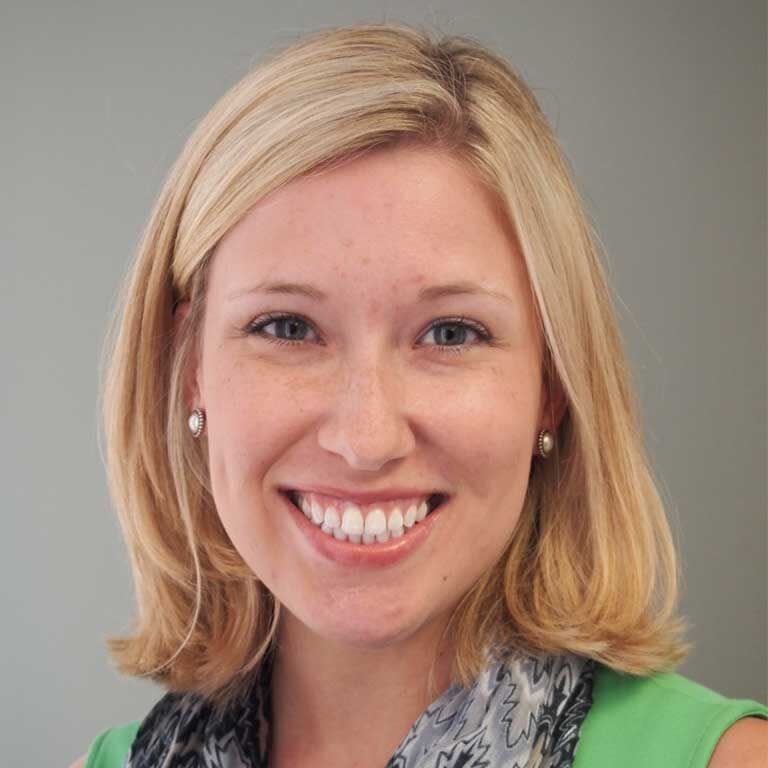Vaccine Summit: Hesitancy, inequity amplify Hoosiers' disease risk

- Oops!Something went wrong.Please try again later.
RICHMOND, Ind. — Vaccine hesitancy did not begin during the COVID-19 pandemic. It had already become a healthcare issue.
“This didn’t happen during the pandemic, the pandemic amplified it,” said Dr. Jerome Adams, a former Indiana State Department of Health commissioner and U.S. surgeon general, during Thursday night's Vaccine Summit in Reid Health's Lingle Hall.
The Wayne County Health Department and Reid organized the Vaccine Summit to disseminate information about vaccines and vaccine hesitancy to healthcare providers and parents. Dr. Kristina Box, the current state health commissioner, and Katharine Head, an IUPUI associate professor in communication studies with research focusing on vaccine communication, joined Adams as presenters.
Whitewater Community Television broadcast the Vaccine Summit throughout its platforms, including Comcast Channel 11, and the nearly 3½-hour program is available at WCTV's Facebook page and will be on its website, wctv.info.
Adams, who spoke first in a discussion with Dr. David Jetmore, the county's health officer, said COVID-19 is a once-a-century pandemic that was coupled with the most divisive recent presidential election and a strong social justice movement.
“Each one of those was a seismic event, and they combined in ways that we’re still trying to digest,” said Adams.
Adams said that while few children have died from COVID-19, the long-term effects continue to be discovered. He said he took his sons to receive COVID vaccinations.
"It’s not just a recommendation I’m making for your kids," Adams said. "I believe it’s the right thing for my kids."
COVID's impact has spread to other childhood vaccines, too. Adams said the World Health Organization estimates 25 million children missed vaccinations last year, and Box said immunizations dropped 10% across Indiana. Box called those missed immunizations a heartbreaking part of the pandemic. Many children are now vulnerable to serious complications and death from diseases stopped by vaccines.
Because of the pandemic, some parents decided not to have children visit healthcare providers, leading to missed immunizations. Childhood immunizations are carefully scheduled, so missing one shot can impact when children can receive other shots.
Of course, some parents do not have their children immunized because of hesitancy. Head said that all who are hesitant are put in one box, but hesitancy is much more complex, with perceived barriers differing from person to person.
She described three C's that influence whether parents have children immunized: confidence in the vaccine, the healthcare providers and policy makers; convenience of the vaccine with its availability, affordability and accessibility; and complacency in the perceived seriousness of the particular disease.

Head said beliefs are impacted by the health literacy of parents trying to make appropriate decisions and the impact disinformation and misinformation have on them.
Adams said new generations of parents have not experienced times such as the 1930s and 1940s, times that he called "perilous" because of the diseases harming and killing children. These people don't know anyone crippled or killed by diseases such as measles and polio, occurrences that shook and scared Americans at the time.
Jetmore said that as a child he was eager to receive the polio vaccine because he had visited classmates in iron lungs because of the disease.
“I absolutely agree it’s a top 10 health threat," Adams said of vaccine hesitancy. "The development of vaccines is truly the greatest advancement of my lifetime. It's the greatest contributor to the fact that I am likely to live longer than my parents.”
Vaccines, however, are not distributed equitably, either locally or globally, Adams said. Availability of vaccines is impacted by location, income, language spoken, transportation availability, access to healthcare providers and other issues. Globally, Adams said Americans complain about the vaccines, while other countries complain that the U.S. won't give them the vaccines.
It behooves Americans to think about vaccine equity on both the local and global scale.
“If we don’t stomp out these diseases where they pop up, they’re a plane ride away from the United States,” Adams said.
In Indiana, the state conducted a Start Smart immunization campaign that included letters to parents of children missing immunizations and immunization clinics in every county, Box said. Of 524,476 children statewide identified as missing one or more immunizations, 144,983 received immunizations from July 11 to Sept. 3. In Wayne County, 1,565 children received immunizations of 4,772 who were missing at least one.
“We are committed 100% that this is going to be a yearly thing in the state of Indiana,” Box said. “The work is still obviously not done. We’ve got to make this as simple as possible.”
That might include offering immunizations in schools, on weekends, at night and in places where people gather.
The role of trusted, local healthcare providers was also highlighted. Head said a strong recommendation from a trusted provider is most likely to lead to vaccination.
For healthcare providers, she encouraged them to discuss vaccines with empathy, ask patients open-ended questions, request permission to share information, explore why a person is hesitant and encourage the person to get vaccinated.
During the program, the experts also discussed the county health department struggles and efforts to address funding with the 2023 state legislature.
Adams said that when he was state health commissioner every county health department requested more staffing when he would visit. He, of course, did not have extra staffing to provide.
Now, he is executive director for Purdue University's Health Equity Initiatives. Research has shown that the majority of Indiana's county health departments are within a half-hour's drive of a university. At those universities, students literally make up projects for classes when they could develop projects that help health departments.
“It’s always been my dream about how we can bridge that divide,” he said.
Adams identified the largest local problems as mental health and substance use; food health, including nutrition and food insecurity; and infectious diseases, including vaccine inequity.
Box said the state invests heavily to grow its economy and attract business and on education.
“What I will tell you is we haven’t invested in the same way in public health," she said.
That's contributed to Indiana ranking poorly among the 50 states in health metrics such as 45th in smoking and tobacco, 46th in obesity, 43rd in mental health and 41st in childhood immunizations. She said the life expectancy of Hoosiers has also decreased since 2010, ranking 40th in 2019 at 77 years, almost two years lower than the national average.
A public health day is scheduled Jan. 26 at the statehouse to push for additional public health funding.
“This is going to take all of us working together, and when we invest more in public health in the state of Indiana, we will get back more from public health in the state of Indiana,” Box said.
This article originally appeared on Richmond Palladium-Item: Vaccine Summit: Hesitancy, inequity amplify Hoosiers' disease risk

